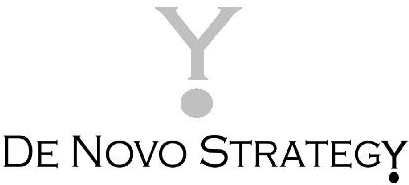Bank failures get the press, but credit unions are struggling too
The banks and the FDIC may be the ones getting all of the attention, but credit unions and their regulating and insuring entity, the NCUA, are also logging their share of problems. So far this year, a full twenty-one credit unions have failed. Compare this to the number of bank failures, just eight, and one has to wonder why the banks are getting a disproportionate share of media coverage.
The easy answer is the difference in the bottom line. Credit unions generally maintain a far smaller asset value relative to their for-profit counterparts. The largest credit union to undergo an NCUA-managed restructure this year was Cal State 9 Credit Union of California, whose asset base totaled $339 million. Next to the $32-billion IndyMac Bancorp. failure, it's almost understandable why Cal State 9's problems weren't worth the air time. This difference is evident in the total figures as well: the combined asset value of all eight failed banks exceeds $38 billion, while the combined assets of twenty-one failed credit unions add up to only $1.8 billion.
A closer look at the numbers, however, indicates that the current economic crisis may be hitting credit unions harder, despite their smaller size. The largest three failed banks, IndyMac, First National Bank of Nevada and ANB, managed assets totaling $32 billion, $3.4 billion and $2.1 billion, respectively. Remove these three entities from the equation and the remaining five failed banks had an average asset size of about $129 million. That $129 million is far more comparable to the average size of the failed credit union, which is roughly $87 million. Evaluating the data in terms of similar-sized operations, the scale tilts in favor of the banks, with only five failures relative to twenty-one credit union failures.
And still, the system works
Even as financial institutions struggle to recover from fractures in the mortgage, real estate and lending sectors, the federal protections have remained reliable. The deposit insurance provided by the FDIC (banks) and the NCUSIF (credit unions) continues to safeguard customer funds: when an entity fails, the FDIC and NCUA give customers immediate access to all insured deposits. Where a customer's deposits exceed insurance limitations, both the FDIC and NCUA work diligently behind the scenes to recover those funds as quickly as possible. In the days following the IndyMac failure, for example, the FDIC offered to advance customers half of their uninsured deposits immediately. The remaining amounts were transferred to customers in the form of receivership certificates, which will be converted to cash as the bank's assets are sold.
Panic begets panic
While the customers of financial institutions may be inclined to make a run on their bank or credit union at even a whisper of instability, those panicky actions actually work against the system. The demise of IndyMac is a case in point. Prior to the bank's closure, U.S. Senator Charles Schumer wrote a letter stating his concerns about IndyMac's financial condition. The bank's customers responded by withdrawing $1.3 billion of deposits in eleven days-a swift and pronounced asset depletion that essentially cemented IndyMac's fate. Subsequently, the OTS had no choice but to step in and ask the FDIC take over IndyMac.
The future may be bright, for some
Unfortunately, the bank and credit union failures are going to continue. Years of enthusiastic underwriting practices combined with troubled economic times are not easily overcome. In the wake of a lending crisis, the future may be brightest for de novo banks that are just now launching operations-nascent entities that aren't weighted down with a legacy portfolio that is marred by bad loans. Also, considering the current real estate market, a new bank enjoys the advantage of writing loans against lower property values. When values start heading back up, those banks will have stronger equity positions. With careful planning and thoughtful underwriting practices, today's de novo banks could be enjoying greater financial stability than most of their competitors for years to come. Given those dynamics, now may be the right time to add a de novo bank investment to your portfolio.


